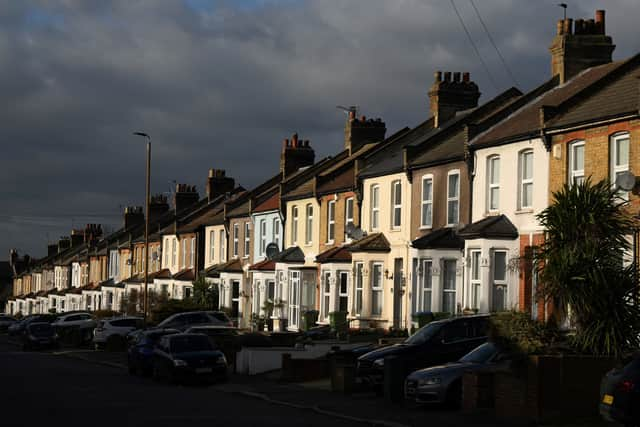Southwark: Thousands of borough’s properties become second homes
This article contains affiliate links. We may earn a small commission on items purchased through this article, but that does not affect our editorial judgement.
and live on Freeview channel 276
A south London borough has bucked the trend in the capital with thousands of properties becoming second homes or holiday lets in recent years, according to new research.
Generation Rent’s study into the impact of holiday lets and second homes on housing supply found the market has, in some parts of the country, cancelled out the addition of new properties, as campaigners call for more powers for local authorities to cap their numbers.
Advertisement
Hide AdAdvertisement
Hide AdAcross London, the number of properties not recorded as a primary home reduced by 329 between 2019 and 2022 - and the housing stock increased by 188,137.
But in Southwark, while the housing stock increased by 4,004, a total of 2,248 were newly classed as second homes or holiday lets.
According to Generation Rent’s research - using data from the Department for Levelling Up, Housing and Communities (DLUHC), 682,235 homes were added to England’s housing stock. Over that same period, 26,043 properties were registered as second homes or commercial holiday lets, 4% of the growth in the stock.
The impacts were highly concentrated in 25 local authorities, the data shows, with Portsmouth the worst hit, where for every four homes built, five were lost to the holiday home sector.
Advertisement
Hide AdAdvertisement
Hide AdIn London, Southwark saw the highest proportion (61%) of its new-builds cancelled out by second homes and holiday lets. Recent City Hall data showed Southwark also has the most long-term empty homes in the capital, leading to the council’s leader, Cllr Kieron Williams, telling LondonWorld the local authority is “using every tool we have to tackle the housing crisis”.
Enfield also experienced a relatively high percentage of new homes cancelled out (28%), though the majority of boroughs appeared not to be hit particularly hard, with quite a few recording a drop in the number of second homes. Kensington and Chelsea recorded 1,076 fewer properties classed as second homes or holiday homes.


Holiday lets
The figures have been released as the government consultation on registering holiday lets and requiring owners to have planning permission to let to tourists is due to close today (June 7).
To counter the pressures faced in parts of the country, Generation Rent is calling on the government to empower councils to licence holiday lets and cap their numbers, and to withdraw tax breaks.
Advertisement
Hide AdAdvertisement
Hide AdGeneration Rent
Dan Wilson Craw, acting director of Generation Rent, said: “The unregulated and undertaxed holiday let sector is out of control. It has taken homes away from locals who grew up in holiday hotspots and people who want to work in the tourist industries, making these areas unsustainable. A large part of the solution to high rents is more housebuilding, but locals won’t see the benefits of this if houses continue to leak into the holiday homes sector.
“It is welcome that the government is looking at ways to regulate holiday lets, but there is a huge risk that the proposals will lock in the sector’s recent growth and make it harder to bring down rents by switching properties back into residential use.”
Southwark Council
Cllr Kieron Williams, leader of Southwark Council, previously said of the impact of short-term lets in the borough: “With one in every 23 children in London homeless, it’s just plain wrong that so many homes are being used as crash pads for jetsetters. The law on short-term lets was supposed to let homeowners earn a little extra when they are away from home. It was not meant to be a way for companies to rake in profits.
“The impact on neighbours is real too. It’s simply not fair on residents to have their block turned into a hotel. If you want to open a hotel you need planning permission. It is absolutely right that the same applies to commercial holiday lets too.”
Advertisement
Hide AdAdvertisement
Hide AdThe UK Government
A DLUCH spokesperson said the government remains committed to delivering 300,000 new homes a year, and that it is investing £11.5bn to build new affordable housing.
They continued: “We are aware of concerns around the proliferation of short-term lets in certain areas. We want to ensure we can provide a safe and competitive guest accommodation offer, while making sure there are homes for local people. We are consulting on a registration scheme for short-term lets and on the introduction of a short-term let use class and associated permitted development rights. These changes would give councils more control over the number of new short-term lets, and help them to meet local housing needs.”
Sign up for our newsletter for the latest, and follow LondonWorld on Facebook, Twitter, Instagram and TikTok.
Comment Guidelines
National World encourages reader discussion on our stories. User feedback, insights and back-and-forth exchanges add a rich layer of context to reporting. Please review our Community Guidelines before commenting.
